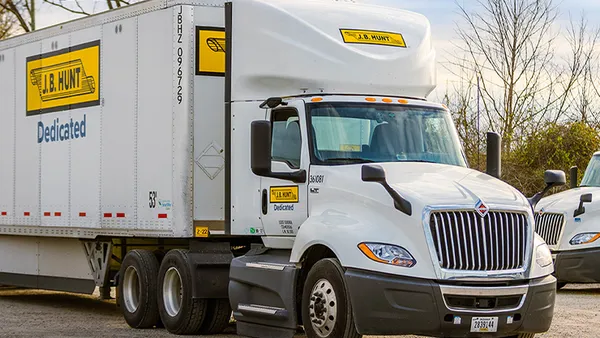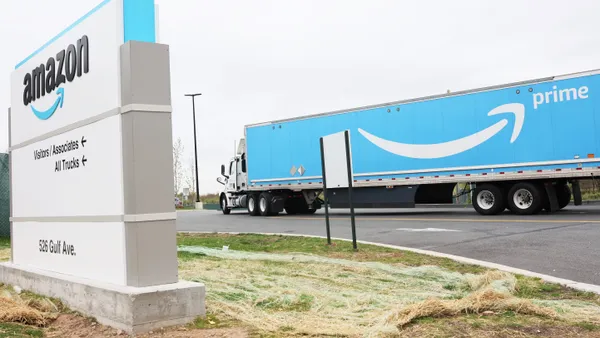Dive Brief:
- XPO experienced a slight uptick in brokerage volume in the fourth quarter, about 1%, but it handled this freight with about 20% fewer staff, CEO Brad Jacobs said Tuesday on the company's fourth-quarter earnings call. Revenue for its brokerage segment was down 14% year-over-year for 2019, which the company blamed on the loss of its largest customer and lower market rates.
- XPO surpassed its goal of getting 100,000 drivers on its Drive XPO application, but said it "has not reached critical mass by a long shot with shippers" using the XPO Connect brokerage tool, Jacobs said on the call.
- When asked by an analyst about Uber Freight, Jacobs said XPO has "a tremendous amount of respect for Uber" and hasn't "seen a lot of effect from Uber in the [brokerage] marketplace."
Dive Insight:
Automation is quickly changing the freight brokerage business with technology startups like Uber Freight and Convoy using technology to do what has traditionally been done over the phone.
"The vast amount of brokerage is still done over the phone with people," Jacobs said. "That’s changing."
The expenses in XPO's brokerage division were down nearly 3% YoY, falling to $91 million, according to the company's financial filings. Revenue for the segment similarly slid (down 14%) to $2.5 billion for 2019.
On the company's third-quarter call, Jacobs said XPO was "procuring capacity in the third quarter at 3% better than DAT, and that's because of our XPO Connect tools." But the company has not highlighted how exactly it is automating a job traditionally handled by employees.
Last year, Convoy announced it had successfully automated every step of the brokerage process — from matching to pricing — on select lanes in top markets.
The ability to automate the process relies on historical data that can be used to improve a company's models, Convoy Chief Product Officer Ziad Ismail told Supply Chain Dive last year.
XPO has repeatedly highlighted its investment in technology over the last year and has rolled out proprietary tools like Connect and XPO Smart. These investments are partially meant to reduce the company's labor cost, Jacobs said on the company's third-quarter earnings call last year. Brokerage bellwether C.H. Robinson also announced last year plans to invest $1 billion in technology over the next five years.
As brokers cut the labor costs associated with their business, those savings could be passed along to shippers, Jacobs said last year.
It wasn't just the brokerage division that experienced cost-cutting at XPO in 2019. Many of the segments saw lower operating expenses in 2019, which impressed analysts, but left some wondering about why the company considered selling off segments. XPO announced last month it is looking into the potential sale or spin-off of parts of its business, but Jacobs did not provide any updates to analysts this week.
"[W]e believe investors have become more keen to the intrinsic value of the different assets, and the cross-synergies of keeping the portfolio together," Morgan Stanley analysts wrote in a research note following the call.













